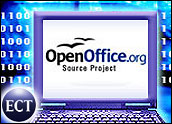
The SCO group reported a net loss Tuesday in its fiscal third quarter, with a significant revenue drop from the comparable quarter of the same period last year. The company noted that its Q3 revenue in 2003 was approximately US$20 million, compared with $11.2 million this year.
SCO has pointed to a decrease in SCOsource licensing revenue as the primary reason for the loss. A year ago, the company saw $7.3 million in licensing revenue, but experienced a sharp drop to its current level, $678,000.
Also on Tuesday SCO announced that its board of directors had adopted a shareholder rights plan designed to deter coercive takeover tactics and to prevent any acquirer from gaining control of SCO without offering a fair price to all of its shareholders.
In a conference call to investors about the financial results, president and CEO Darl McBride noted that the company is confident that several recent moves, including revision of some legal fees, should put the company back into a good position in the coming months.
Legal Bills
SCO also admitted that in addition to the decline in licensing, the company spent more in legal fees than it had expected. Currently embroiled in litigation against IBM, Novell and others surrounding SCO-owned Unix V source code, the company has spent about $7.2 million in legal fees for the quarter.
In an attempt to get legal costs under control in the future, the company announced that it had hammered out a deal with legal firm Boies, Schiller & Flexner for a revised fee agreement.
Under the deal, the overall costs of SCO’s suits will be limited to $31 million, and, in return, the legal firm will receive an increased contingency fee of between 20 percent and 33 percent.
McBride stated that the agreement will give SCO greater financial flexibility as it brings its litigation closer to a court date, set for next fall.
In his conference call, McBride noted that the litigation with IBM and others will not be affected by the Q3 results. “Through the combination of the quarter’s positive developments and our current cash position, we are well-positioned to pursue our current litigation through its conclusion,” he said.
SCO spokesperson Blake Stowell confirmed with LinuxInsider that the company would not drop its litigation because of the company’s financial results. “We look forward to bringing the case to its conclusion,” he said.
Product Lines
Beyond making new arrangements for containing legal costs, the company will try to gain new revenue from products and services that were announced in the third quarter.
Jeff Hunsaker, senior vice president and general manager of SCO’s Unix division, told LinuxInsider that there has been a major upgrade to the UnixWare product line, an update to SCOoffice Server 4.1, and a move into the embedded Unix market with a product named Smallfoot.
Hunsaker is optimistic that coming months will bring increased focus on the products. “We developed these based on the feedback from our customers,” he said. “So, we’re seeing a very good reaction to them.”
He added that because the company’s product line now includes technology that is more scalable than in the past, SCO hopes to capture new customers as well as satisfy established ones.
“This is the largest array of products we’ve had,” he said. “I think that’s going to take us in new directions.”
Playing Stratego
SCO also is pinning hopes for better financial performance on other initiatives, announced recently.
The company has announced a plan for a city-to-city tour that will bring SCO representatives to several major metropolitan centers like New York, Boston and Chicago.
The tour will run from September 22 through October 7, and Hunsaker noted that it will give the company a chance to showcase its products more effectively.
McBride noted that another significant move was the closing of the BayStar transaction. The contentious battle between the two companies involved a financing deal that funded some of SCO’s Linux litigation.
Unhappy with SCO’s system and software development, rather than its litigation efforts, BayStar threatened to sue but ended up accepting a financial settlement from SCO instead.











































